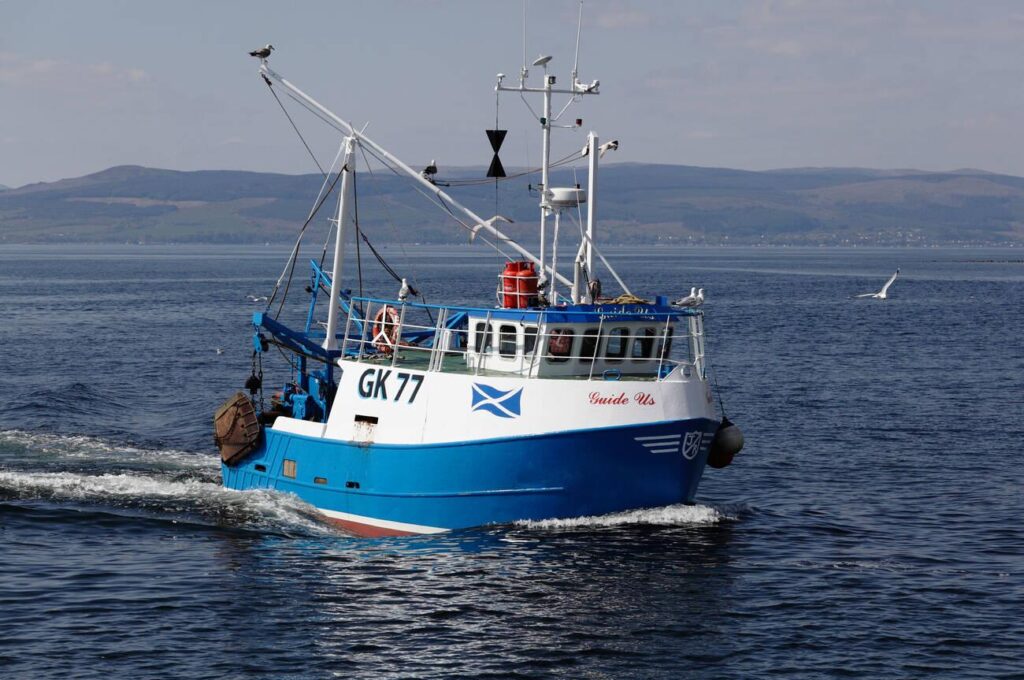A fishing boat can go up to 20-30 knots or about 23-35 miles per hour. Fishing enthusiasts, both seasoned and novices, know the thrill of being on a fishing boat.
When it comes to the question, ‘how fast can a fishing boat go? ‘ The answer is that it varies depending on the size, weight, and engine of the boat. In general, a standard fishing boat equipped with a single outboard motor can travel at a speed of around 20-30 knots.
However, it’s worth noting that larger and more powerful fishing boats can reach higher speeds, up to 50 knots or more. Whether it’s trolling for the catch of the day or speeding towards the perfect fishing spot, the speed of a fishing boat is important for any angler.

Table of Contents
Importance Of Speed In Fishing Boats
Speed plays a crucial role in fishing, and anglers understand its importance. The ability to travel quickly to different fishing spots will often increase the chances of hauling in a big catch. Different water conditions require different speeds, with choppy waters needing slower speeds while smooth waters may allow for faster speeds.
The speed of the boat can also affect the ability to properly fish, with too much speed potentially reducing the bait’s effectiveness. Anglers should carefully consider how the speed of their boat will impact their fishing experience and tailor their strategies accordingly.

How Fishing Boats Move
Fishing boats move through water using different types of propulsion systems. Understanding the physics of boat movement is important for designing boats that move quickly and smoothly. The most common types of boat propulsion include outboard motors, inboard motors, and jet drives.
Boat design can impact speed and handling, as a wider boat tends to be slower than a narrower one. A boat’s shape, material, and weight distribution can also affect its speed and maneuverability. To reach top speeds, boats need to reduce drag by minimizing air resistance and decreasing water turbulence.
Fishing boat speed depends on various factors, such as the type of engine, boat size and design, the number of passengers on board, and water conditions.
The Fastest Known Fishing Boats
Fishing boats have come a long way in terms of speed, with the fastest models exceeding 80 knots. The mystic c5000s, for example, can reach a top speed of 120 mph. It’s fitted with twin mercury racing v8 engines and advanced hydrodynamic features that make it aerodynamic in the water.
The mti v 42 center console is another speedy model, boasting a top speed of 80 mph powered by four mercury 400r racing engines. These fast fishing boats may seem unnecessary, but they can help you cover more water in less time, increasing your chances of catching that elusive trophy fish.
Factors That Limit The Speed Of Fishing Boats
Fishing boats depend on a variety of factors that limit their speed. External factors can cause drag, reducing the boat’s speed. Poor maintenance can also hinder the boat’s ability to maintain maximum speed. Understanding these limitations can help you appreciate why fishing boats can only go so fast.
This information is helpful to ensure that your boat is well-maintained and running at peak performance to enjoy faster sailing speeds. By following proper maintenance and upkeep, you can extend the lifespan of your fishing boat while keeping it running at its fastest speed.
Frequently Asked Questions Of How Fast Can A Fishing Boat Go:
How Fast Can A Fishing Boat Go?
The speed of a fishing boat depends on factors such as its size, engine power, and weather conditions. On average, a fishing boat can go between 20 to 30 knots (23 to 34 mph).
What Is The Fastest Fishing Boat In The World?
The fastest fishing boat in the world is the bumblebee, which set a world record in 1972 for a speed of 123. 29 mph (198. 35 kph) in a quarter-mile run. However, this boat was specifically designed for speed and not for fishing.
How Does Boat Size Affect Speed?
Larger boats generally have more powerful engines and can handle rougher waters, allowing them to go faster. However, larger boats also require more fuel to achieve their top speeds, which can be expensive. Smaller boats may not be able to go as fast, but they are more efficient and cost less to operate.
Conclusion
After conducting extensive research and analysis, we can conclude that the speed of a fishing boat ultimately depends on several factors, such as the type of boat, water conditions, weather, and more. While some boats can reach impressive speeds of 70+ mph, most fishing boats typically cap out at around 30 mph.
It’s important to keep in mind that just because a boat can go faster, it doesn’t necessarily mean it always should. It’s crucial to prioritize safety and responsible navigation while enjoying recreational boating activities. Whether you’re looking to reel in a big catch or simply enjoy the peacefulness of being out on the water, understanding the capabilities and limitations of your fishing boat is essential.
You may also like:
